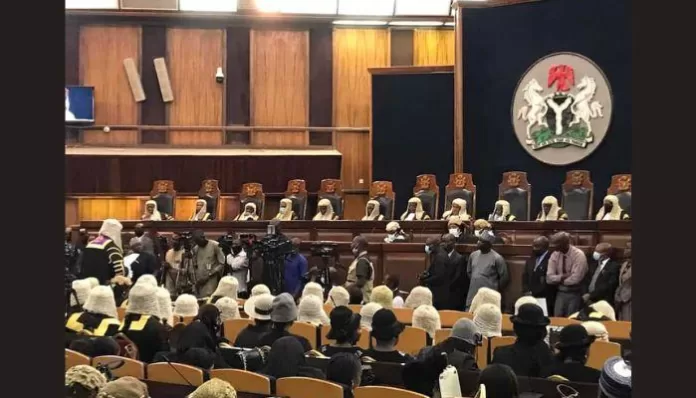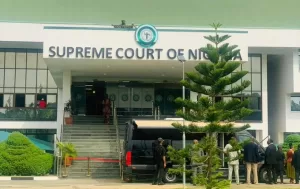The Supreme Court on Friday nullified the National Lottery Act 2005, ruling that it was enacted in violation of the constitutional powers granted to the federal legislature.
Justice Mohammed Idris, delivering the lead judgment, stated that the National Lottery Act can no longer be enforced in any state across Nigeria, except in the Federal Capital Territory (FCT), where the National Assembly has the authority to legislate.
This landmark ruling followed a legal battle that began in 2008, when Lagos State, joined later by other states, filed a suit challenging the applicability of the Act in their jurisdictions.
The court clarified that while the National Assembly holds legislative authority over the FCT, its powers do not extend to the regulation of lottery activities in individual states.
Justice Idris granted all the reliefs sought by the plaintiffs, declaring that lottery and games of chance are not part of the Exclusive Legislative List in the Constitution.
This means that the National Assembly does not have the power to legislate on lotteries for the entire country. He further declared that, according to the Constitution, the National Assembly lacks the authority to regulate or control lotteries in Nigeria.
The judgment emphasized that matters related to lotteries do not fall under the concurrent legislative powers of both the National Assembly and state Houses of Assembly.
Consequently, it was ruled that the House of Assembly of Lagos State, along with other states, holds the exclusive power to regulate and control lotteries within their territories.
READ ALSO: Reps Reject Bill Seeking Six Years Single Tenure for President, Governors
In a detailed ruling, Justice Idris also pointed out that several provisions of the National Lottery Act, specifically sections 17 through 21, were inconsistent with the 1999 Constitution. As such, he issued a sweeping order to nullify the entire Act.
Additionally, the Supreme Court issued a perpetual injunction, restraining the Attorney General of the Federation (AGF) and any federal agencies from enforcing the provisions of the National Lottery Act within the plaintiff states.
This effectively limits the federal government’s involvement in the regulation of lotteries outside the FCT.
The judgment was delivered by a panel led by Justice Uwani Abba-Aji, with Justices Mohammed Lawal Garba, Emmanuel Agim, Simon Tsammani, Stephen Adah, and Jamilu Tukur concurring.
The suit, originally filed by Lagos State, also saw Ekiti State and 34 other states joining the case as plaintiffs, following a 2020 court order and further developments in 2022.
The plaintiffs had asked the court to declare that lottery regulation does not fall within the 68 items on the Exclusive Legislative List, which are under the sole purview of the National Assembly.
They also sought confirmation that the National Assembly lacks the constitutional authority to regulate lottery operations nationwide.
The ruling marks a significant shift in the legal framework governing lottery operations in Nigeria, reaffirming the rights of individual states to regulate and control this sector within their jurisdictions.


